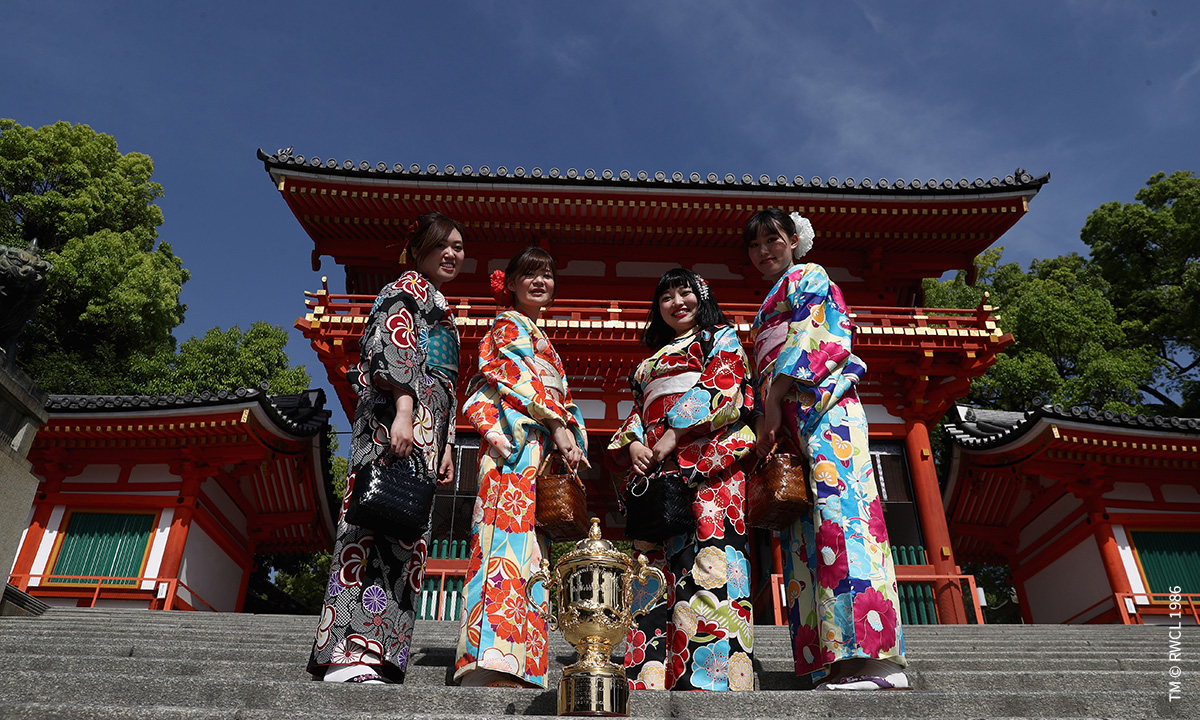
The road to the Webb Ellis Cup
With Rugby World Cup 2019TM, Japan kicking off between the hosts Japan and Russia on 20 September, we bring you a series of articles designed to get you ready for the most anticipated sports event of the year.
At just over three decades old Rugby World CupTM (RWC) is a relative newcomer on the international sporting stage but it’s become one of the most-watched sporting events on the planet. Rugby is a sport filled with physicality, passion and drama and requires a unique combination of brains and brawn in order to succeed.
A UNIQUE PROPOSITION
There is something special about this year’s tournament, taking place across 12 host cities in Japan. Perhaps it’s because this is the first time the event is being hosted in Asia (and first outside the sport’s traditional powerhouses to host the tournament), and with that comes a sense of unpredictability. There is no precedence, just the expectation of thrilling rugby action ahead, in one of the most culturally unique countries on the planet. Excitement is already building in Japan and residents are getting behind their team. The opening match between the hosts and Russia on 20 September is anticipated to smash the domestic broadcast audience record of 28 million. Elsewhere, fans from around the world are planning their trips so they can support their countrymen and be a part of a historic occasion.

The Japanese concepts of Omotenashi and Omatsuri are hugely important in Japanese culture and both are set to define the very essence of Rugby World Cup 2019TM. Omotenashi is the Japanese spirit of hospitality in which visitors are offered the very best welcome possible, and Omatsuri is the Japanese word for festival.
THROUGH THE AGES
To fully understand what’s s at stake for the 20 nations competing at this year’s tournament, let’s recap what’s gone before.
A LOOK AHEAD
Japan hosting this RWC is particularly poignant as it represents a shift in the sport’s status quo, while also showcasing the best of Asian culture and hospitality to the rest of the world. The stage is set beautifully for a highly competitive, action-packed tournament. Never before have so many teams been in with a shout of taking home the title! Inspired by their loyal fans and home advantage, Japan will undoubtedly bring their A-game in a bid to make it past the pool matches and beyond for the first time. Australia, France and South Africa, three teams that haven’t been winning as consistently as they’re used to over the last couple of seasons, have a strong RWC pedigree and should not be written off. England will be looking to make amends after their disappointing performance in 2015 while Wales and Ireland enter the tournament in their highest ever ranking positions (2nd and 3rd respectively), adding a weight of expectation they haven’t experienced before. Of course, the ever dominant New Zealand, the #1 ranked team in the world, will be favourites to make it three titles in a row.
JOIN THE JOURNEY
You don’t need to be a player or even watched rugby previously to be able to enjoy RWC 2019 in Japan. The unique spirit of the match is unquestionable and this will be on show to the world when the tournament starts on 20 September at Tokyo Stadium. Being the first RWC to be hosted in Asia, this instalment is considered to be very important to the growth of rugby and will go along way to attract new spectators and young players. From the yakitori and sushi bars to the onsens and bullet train stations across Japan, rugby fever to hit a nation and we can’t wait to watch the action unfold.
![]()
Join us for this once in a lifetime journey toward Rugby World Cup 2019 by following Societe Generale on our social media channels.
#BecauseWeLoveRugby
#JoinTheJourney

Societe Generale wins three prestigious accolades at the HKEX awards 2024
The HKEX Awards celebrate exceptional achievements among market participants in the Hong Kong financial markets in 2024.

China finds its feet: economic stability and gradual recovery in 2025
By Wei Yao, Head of Research and Chief Economist for APAC at Societe Generale.

Best of both worlds: How social ABS delivers low-cost financing and a positive impact
By Eugene Kim, Head of Securitisation and Fund Finance for Asia Pacific at Societe Generale.

Data centres are taking Asia-Pacific by storm
By Marie Vinnell, Chief Country Officer for Australia and Eugene Tan, Head of Technology, Media and Telecoms for Asia...

